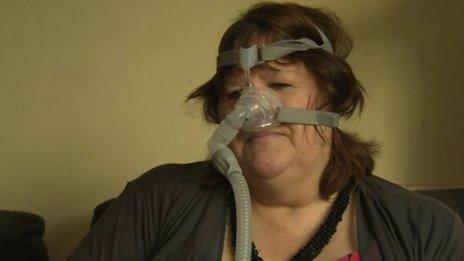Sleep disorder rise in Wales 'linked to obesity'
- Published
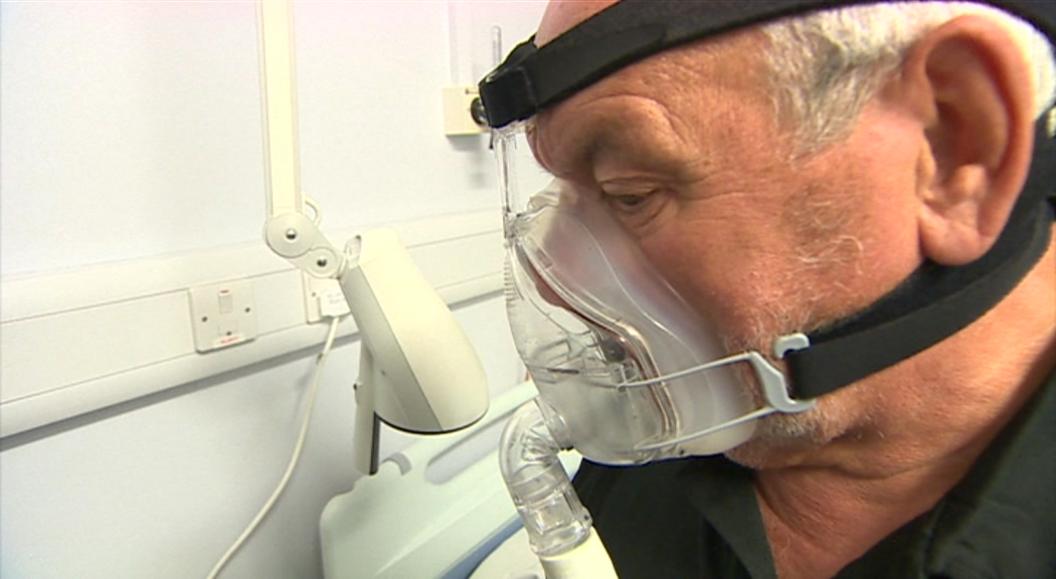
Mike Morgan said his condition has improved by using a machine to help him breathe at night
The number of people receiving inpatient care for sleep disorders in Wales has grown by 30% in the last five years, new figures have shown.
There were 962 inpatients or inpatient attendances among five of the seven health boards able to provide data for 2017, compared with 741 in 2013.
One expert said the increase was due to a rise in obesity and more awareness.
Mike Morgan, 72, said sleep apnoea made him stop breathing a "terrifying" 254 times a night before he had treatment.
He was diagnosed with the condition in 2015 after doctors treating long-term heart problems suggested taking a test.
Obstructive sleep apnoea (OSA) is a relatively common condition where the walls of the throat relax and narrow during sleep, interrupting normal breathing.
Mr Morgan, from Tredegar, Blaenau Gwent, said: "I was snoring, I was falling out of bed, I was hitting my wife... well, I was trying to hit her [but] she was stopping me. I was acting out my dream. I was kicking out.
"I'd wake up in the morning tired, and I'd been 'sleeping' for 10 hours."
Through the night, Mr Morgan, a retired insurance worker, now uses a continuous positive airway pressure (CPAP) machine, a pump which delivers compressed air through a mask and prevents the throat from closing.
"As soon as I put this little machine on, it went like that - absolutely amazing," he said.
Figures obtained by BBC Wales News via freedom of information requests show that the number of inpatients or inpatient attendances for sleeping disorders hit a five-year high in 2017.
Sleep aids 'wellbeing'
There were also 4,712 outpatients or outpatient visits for sleeping disorders among the five health boards able to supply data since 2013.
Dr Jose Thomas, a sleep and respiratory medicine consultant, said: "Sleep disorders produce a lot of misery and suffering in that sleep is such a basic function for your wellbeing and, without good sleep, you wouldn't feel well."
He is based at the advance sleep centre at Nevill Hall Hospital, in Abergavenny, Monmouthshire, which sees about 500 patients each year.
Dr Thomas said there were almost 70 sleep disorders, as well as psychiatric conditions and psychological disorders which can affect sleep.
"Obstructive sleep apnoea is the most-common sleep disorder and the incidence of prevalence is very closely linked to obesity," he said.
"So, as obesity prevalence increased over the last few decades, the prevalence of sleep apnoea has increased."
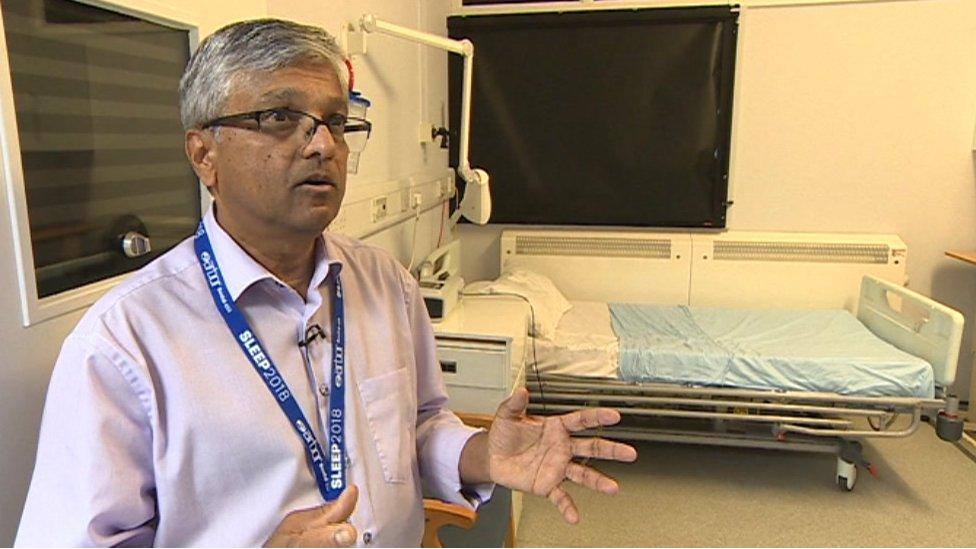
Dr Jose Thomas: 'As obesity prevalence increased over the last few decades, the prevalence of sleep apnoea has increased'
He said there was also increased awareness among the public as well as medics, which has affected the figures.
He said there was "good provision" across Wales with medical staff dealing with sleep apnoea and other respiratory sleep problems but, for neurological sleep disorders, the "provision is not as great".
Non-respiratory disorders, which include insomnia, narcolepsy and sleep walking, are due to underlying causes linked to psychiatric or neurological illness.
Dr Thomas said chronic insomnia affects about 10% of the population, restless-leg syndrome a similar proportion, while conditions like narcolepsy affect far fewer people - about 0.05% of the general population.
But for those affected by narcolepsy, it "really is a very debilitating disease," he said.
- Published29 August 2018
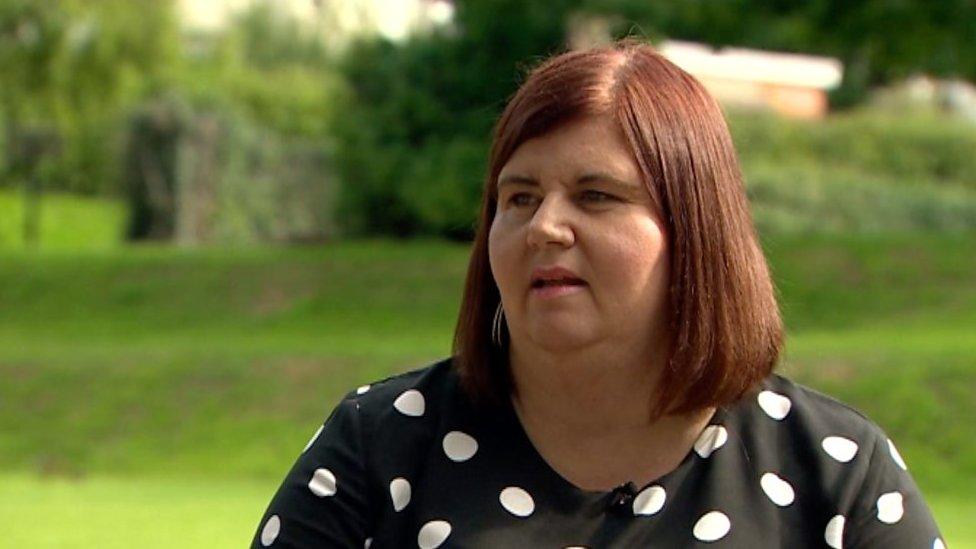
- Published2 June 2017
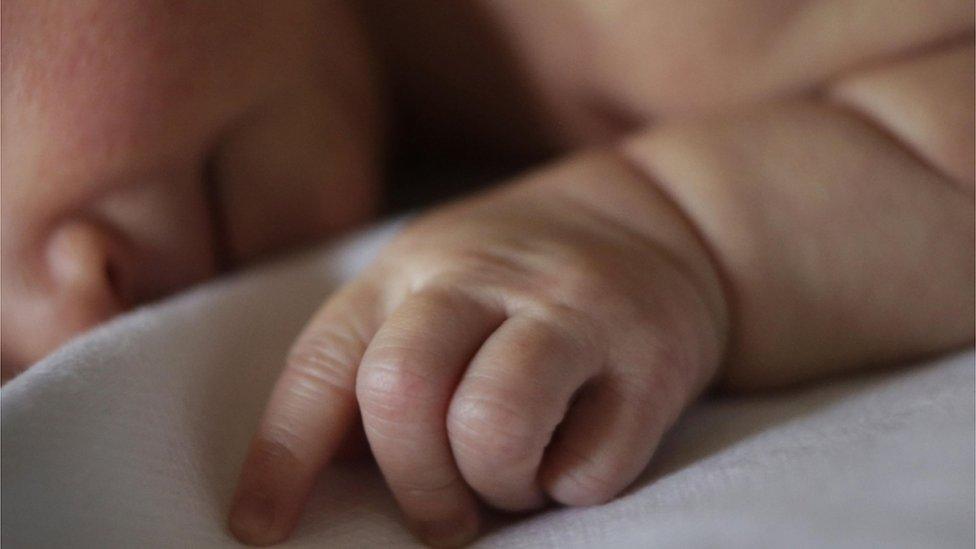
- Published20 June 2017
